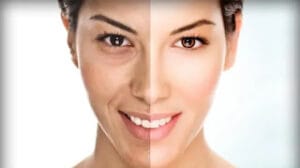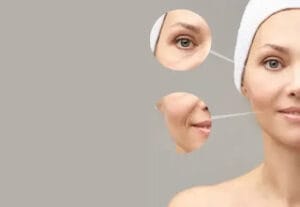Glutathione And Its Benefits For Skin
Introduction
Glutathione is a powerful antioxidant that not only helps in skin brightening but also plays a pivotal role in reducing oxidative stress, which is a major cause of premature aging. A unique detail about glutathione is that it works by inhibiting the enzyme tyrosinase, which is responsible for melanin production. This leads to a gradual lightening of the skin tone and reduction of hyperpigmentation. Glutathione is a master antioxidant that not only brightens the skin but also plays a crucial role in cellular detoxification, collagen synthesis, and skin repair. A unique aspect of glutathione’s effect on the skin is its ability to modulate melanogenesis by shifting the balance from eumelanin (darker pigment) to pheomelanin (lighter pigment), resulting in a naturally radiant complexion without causing patchy depigmentation.
A unique detail about glutathione’s benefits for the skin is that it not only reduces melanin production but also influences the balance between pheomelanin (light pigment) and eumelanin (dark pigment). This means that instead of just bleaching the skin, glutathione promotes the shift toward a naturally brighter and more radiant complexion without causing uneven depigmentation.
Skin Benefits of Glutathione
Reduces Hyperpigmentation & Brightens Skin
Glutathione inhibits tyrosinase, the enzyme responsible for melanin production. By controlling melanin synthesis, it fades dark spots, sun damage, melasma, and post-inflammatory hyperpigmentation (e.g., acne scars).Unlike chemical bleaching agents, glutathione lightens the skin gradually and evenly, preventing uneven skin tone or depigmentation issues.
Prevents Collagen Breakdown
Glutathione reduces oxidative stress that accelerates collagen degradation, keeping the skin firm and elastic.
Reduces Wrinkles & Fine Lines
It helps neutralize free radicals that cause premature aging, delaying wrinkle formation and sagging skin. Protects Against Glycation – Glycation (when sugar molecules damage collagen) is a major cause of skin aging. Glutathione prevents this by stabilizing cellular structures and reducing oxidative stress.
Reduces Acne & Inflammation
Its anti-inflammatory properties help in calming acne flare-ups and redness making it ideal for those with sensitive or acne-prone skin.
Detoxification
Acts as a skin detoxifier, Supports liver function, which helps in flushing out toxins that may contribute to dull, acne-prone skin. Regulates Sebum Production, balancing oil levels to prevent clogged pores and breakouts.
Improves Skin Hydration & Elasticity
Glutathione enhances the skin’s moisture retention, leading to a plumper and more youthful look, it protects against moisture loss, dryness, and environmental damage.
Provides UV Protection & Reduces Sun Damage
While not a sunscreen, glutathione acts as an internal protector against UV-induced oxidative stress, reducing the harmful effects of sun exposure. It minimizes photoaging, sunburn, and UV-induced pigmentation, keeping the skin healthy and resilient.
Enhances Skin Barrier Function
Glutathione strengthens the skin’s natural defense against pollutants, toxins, and allergens, reducing sensitivity and irritation.
Speeds Up Wound Healing
By boosting cellular repair and regeneration, it helps heal acne scars, cuts, and other skin injuries more quickly.
Maximizing Glutathione’s Skin Benefits
Pair with Vitamin C:Enhances absorption and effectiveness.
Regular supplementation or topical application of glutathione, combined with vitamin C, enhances its effectiveness for skin health.
Use in Liposomal or Sublingual Forms
These increase bioavailability compared to standard oral supplements.
Topical Application
Glutathione-infused serums or creams can provide localized brightening and antioxidant effects.
Healthy Diet & Lifestyle
A nutrient-rich diet, hydration, and reduced alcohol/smoking improve glutathione levels naturally.
What Happened When You Stop Taking Glutathione
When you stop taking glutathione, one unique effect some people notice is the gradual return of their natural skin tone. Since glutathione is known for its skin-brightening effects by reducing melanin production, discontinuing it can lead to a slow re-pigmentation, especially in sun-exposed areas. This change doesn’t happen overnight but rather subtly over weeks or months as your body’s natural melanin levels normalize.
Additionally, some individuals report a slight increase in fatigue or sluggishness, as glutathione plays a crucial role in detoxification and energy metabolism. If your body was relying on supplementation, it might take time to adjust to producing optimal levels on its own again.
To overcome the effects of stopping glutathione, one unique approach is to boost your body’s natural production by focusing on sulfur-rich foods like garlic, onions, and cruciferous vegetables (broccoli, kale, Brussels sprouts).
Additionally, regular exercise—especially high-intensity interval training (HIIT) or strength training—can naturally increase glutathione levels by enhancing antioxidant enzyme activity. Pair this with adequate sleep, as deep sleep helps regulate oxidative stress and supports glutathione production.
For those experiencing skin tone changes, maintaining a diet rich in vitamin C (from citrus fruits, bell peppers, and strawberries) can help support melanin balance while continuing to provide antioxidant protection.

